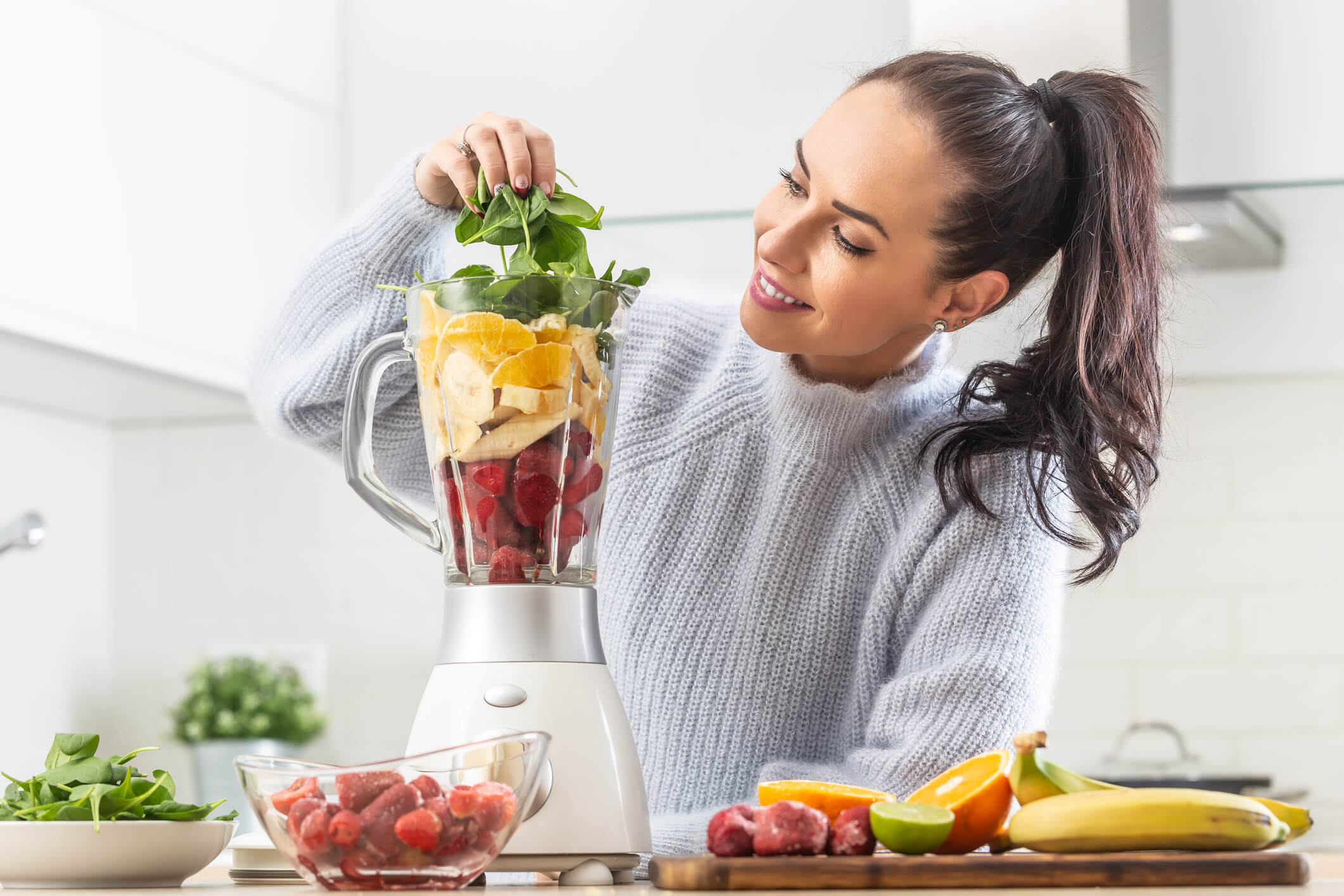Collagen is a type of protein that’s found in our connective tissue, cartilage, bone, and tendons. It helps to keep wrinkles at bay and skin looking plump. It also plays a critical role in supporting the health of our nails and joints.
Our bodies make collagen, but production typically declines with age. More and more people are now taking collagen supplements in hopes of defying the aging process. This collagen-buying trend is fueled by advertising and also by a growing number of celebrities. Media personality and socialite Kourtney Kardashian, for example, says that she starts her day with a hot collagen beverage that she believes helps to keep her skin, hair, and nails in good shape.
Is the marketing hype working? Yes, and spectacularly. In 2020, consumers spent just shy of $300 million on various collagen products, a six-fold increase from 2014. And you ain’t seen nothing yet. One market research firm predicts that the collagen market will hit almost $17 billion (with a “B”) in sales by 2028.
But what is collagen, and why is it important? How is it produced, and how do we make sure that we have enough of it? Are supplements helpful or just marketing hype? And should you eat collagen directly, or just eat foods that help you build it in your own body?
Here’s what you need to know about collagen, collagen supplements, and (spoiler alert!) why the food on your plate is the healthiest place to start. Before you start dropping hundreds of dollars on fancy powders, creams, or lotions, maybe you’ll discover that plants can plump your skin from within.
What Is Collagen?

Collagen is a protein. Fun fact: It’s the single most abundant protein in the animal kingdom, comprising one-third of the total protein in your body and accounting for three-quarters of the dry weight of your skin.
Collagen is important because it provides structural support to connective tissues that make up your body: skin, tendons, bones, and ligaments. It basically holds everything together, which is why collagen is often called the body’s scaffolding.
Its presence in your skin helps provide volume that keeps your skin looking plump (in a good way) with fewer visible fine lines and wrinkles. That’s why so many people are drawn to the idea of getting more collagen into their bodies through supplements and other products: Beauty sells.
What Causes Collagen Breakdown?

Collagen naturally breaks down as you age, but the rate of that process varies from person to person. Your genetics play a role, so if you have skin that retains a healthy glow while your contemporaries are getting wrinkles, you might be able to thank your parents and grandparents. Your genetic heritage, however, doesn’t tell the whole story. Other factors may be at play when it comes to collagen breakdown in your body — and some of those, unlike the genetic hand you were dealt, are very much in your control.
Diet
The foods you fuel your body with have a major impact on your health in all respects, including collagen production. In fact, nutritional deficiencies — deficiencies that are quite common in the standard modern diet — can prevent new collagen from forming. For instance, without a steady supply of antioxidants, excess free radicals can wreak havoc on your cells and overwhelm your body’s natural repair processes.
Making matters worse, foods low in antioxidants — such as those full of added sugar and refined carbohydrates — can increase oxidative stress and inflammation within your body. This can actually thin layers of collagen and accentuate signs of aging.
Broccoli, spinach, carrots, and potatoes are all high in antioxidants, and so are artichokes, cabbage, asparagus, avocados, beetroot, radish, lettuce, sweet potatoes, squash, pumpkin, collard greens, and kale.
Sun Exposure

The Victorian upper classes may have had a repressive culture, but they were onto something when they discouraged exposing skin to excessive amounts of sunshine. Putting aside the status snobbery of that belief, it is true that limiting the direct sun exposure your skin receives isn’t just important for preventing sunburns; too much UV radiation also compromises collagen production, eventually leading to a collagen deficit in your body.
While modest amounts of sun exposure can be healthy (love that vitamin D!), excessive doses of UV light may inactivate antioxidants in the skin and further promote the degradation of collagen and elastin. This can decrease the overall strength of the skin, generate wrinkles, and even create a microenvironment that facilitates tumor formation and progression.
Because melanin pigments in skin are photoprotective — meaning the more melanin you have the more natural sun protection you have — lighter-skinned people are more at risk for skin damage from UV irradiation than those with darker skin.
Smoking
Smoking is one of the worst habits when it comes to your skin. The Marlboro Man may look strong and tough, but he will soon enough develop crow’s feet, frown lines, and brow droop — along with lung cancer, bronchitis, and heart disease. Cigarette smoke destroys collagen throughout the body and especially in the arterial tissues, which is likely one reason that it increases your risk of heart disease. In one 2019 study, researchers found that the elasticity of the forehead and the thickness of the dermis of the cheeks were significantly lower among smokers compared to non-smokers.
Stress

Stress can also undermine the integrity of skin collagen. A stressed-out body will produce less collagen and be less able to prevent the breakdown of existing stores.
When you’re stressed, your body releases more of the hormone epinephrine (or adrenaline) as part of your fight-or-flight response. This means that fibroblasts (cells that produce the collagen proteins that preserve the structural framework of many tissues) don’t do their job very well. This can impair wound healing and other skin repair.
When someone’s overwhelmed by stress — snapping at others and perceiving attacks everywhere — they may have thin skin literally as well as figuratively.
Collagen Vascular Diseases
Collagen vascular diseases are autoimmune conditions in which the body attacks healthy tissue like collagen, reducing its production and presence. Some examples include:
- Lupus, a disease in which the immune system becomes hyperactive and attacks healthy tissues. Symptoms often involve a cheek rash, fatigue, skin lesions, joint pain, and shortness of breath.
- Systemic scleroderma, which causes abnormal collagen growth and affects the skin, joints, and other organs. Common symptoms include fingertip swelling, joint pain, spider veins, and calcium bumps (deposits of calcium that develop just under the skin, known officially as calcinosis cutis — ironic because most people don’t find them cute at all) as well as, in more severe cases, heart failure and kidney disease.
- Rheumatoid arthritis, a chronic inflammatory disorder that causes the lining of the joints in the feet and hands to swell. Symptoms generally include fatigue, joint swelling and stiffness, and bumps of tissue on affected limbs.
- Sjögren’s syndrome, a systemic autoimmune disease that affects the entire body and often occurs alongside other immune disorders like rheumatoid arthritis and lupus. It generally causes dry eyes and mouth, and may eventually impact joints and organs including the skin, liver, and kidneys.
Can You Get Collagen From Food?
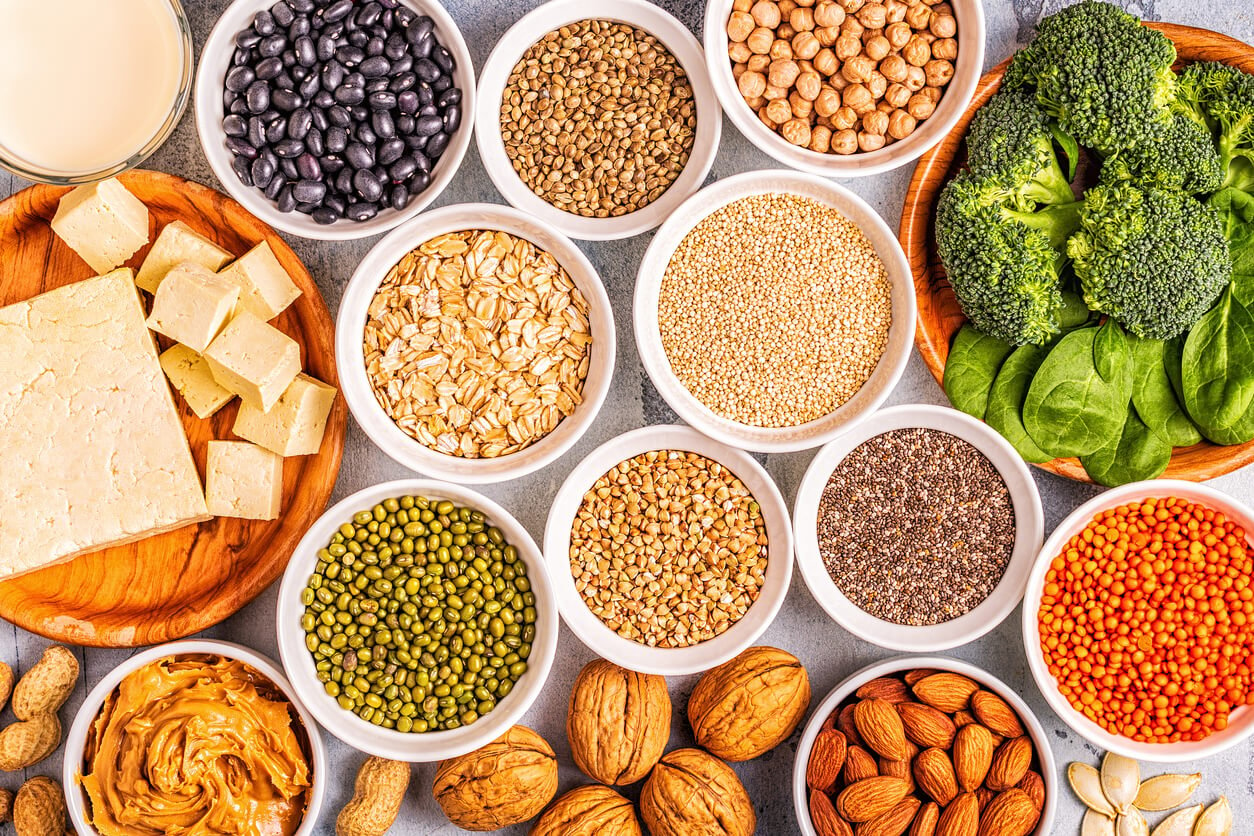
Collagen is found in animal products — like meat, fish, and eggs — that contain connective tissue. However, the collagen that you ingest in this way isn’t automatically available for your body to use. This is because the body can’t absorb collagen in its whole form. Rather, your body breaks down the protein into its constituent amino acids, which it may then use to build new proteins.
The amino acids necessary for collagen production can come from any protein source, but plant-based proteins have generally been shown to be healthier. Some plant-based sources of protein include whole soy foods like tofu and tempeh, legumes including beans, peas, and lentils, nuts and seeds, whole grains, and even vegetables like broccoli.
The amino acids that are most important for collagen production are glycine, proline, hydroxyproline, and lysine. Some of the best plant-based sources of these amino acids are nuts, seeds, legumes, and mushrooms. (For more on protein, see our article here.)
In addition to protein, other nutrients assist the body in the synthesis of collagen.
Nutrients and Best Food Sources for Collagen Production
Below are some of the nutrients and foods that can most benefit your collagen health. Eating a wide variety of these foods can help support your body’s natural collagen production and maintenance.
Vitamin C
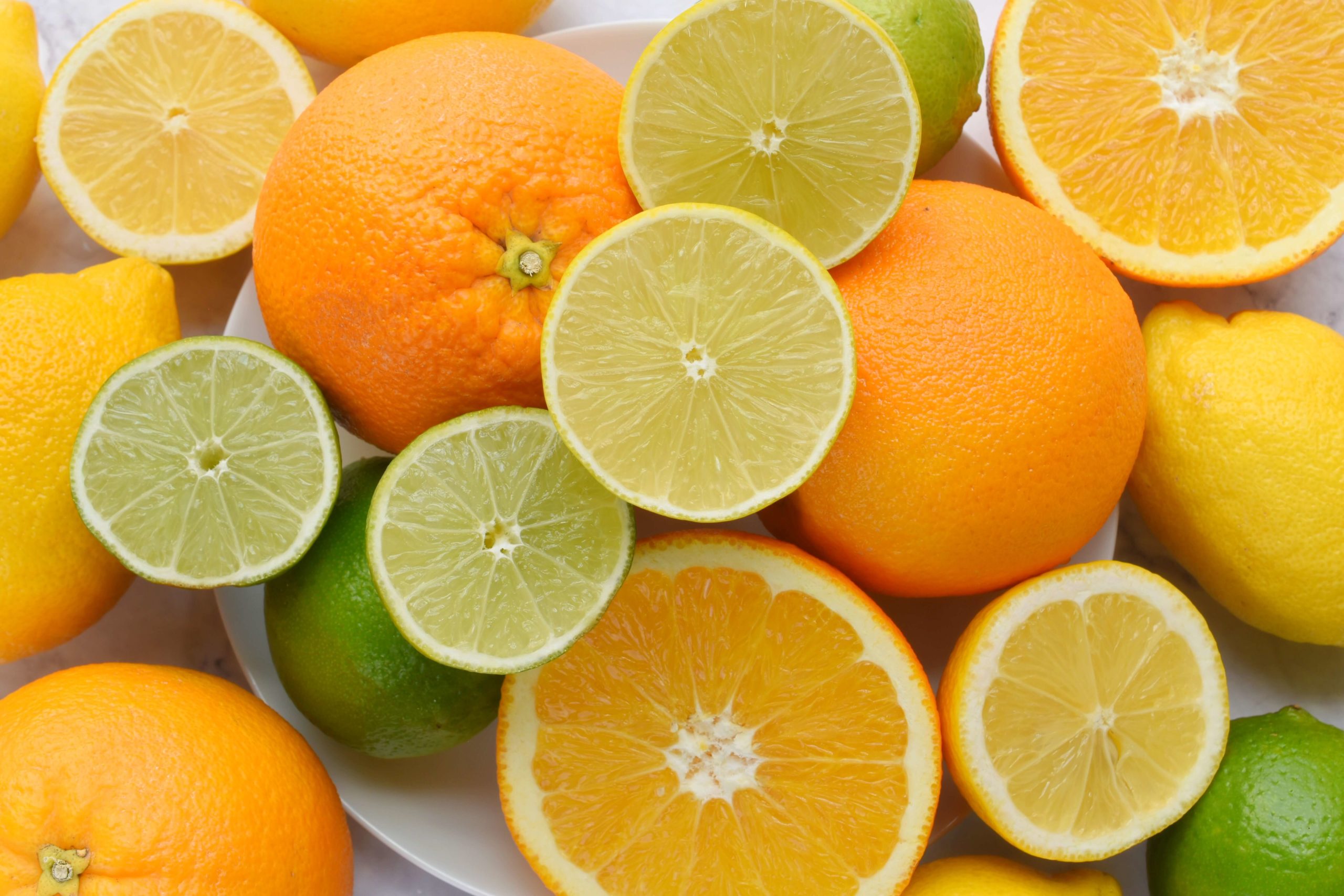
Vitamin C is a necessary cofactor for the two enzymes required for collagen synthesis: prolyl hydroxylase (to stabilize the collagen molecule) and lysyl hydroxylase (to give structural strength by cross-linking). Recent research has further shown that vitamin C acts directly on your DNA to regulate how much collagen you have within your cells.
Vitamin C also functions as an antioxidant, combating oxidative stresses that would degrade existing collagen. All fruits and vegetables contain vitamin C, but the best food sources include citrus fruits, peppers, strawberries, kiwis, and tomatoes. (For more on vitamin C, see our article here.)
Zinc
Zinc is another cofactor in collagen synthesis. It can also break down and repair collagen, assist in wound healing, and help support your skin health and integrity. Good plant-based food sources of zinc include nuts, seeds, legumes, and whole grains. (For more on zinc, see our article here.)
Sulfur
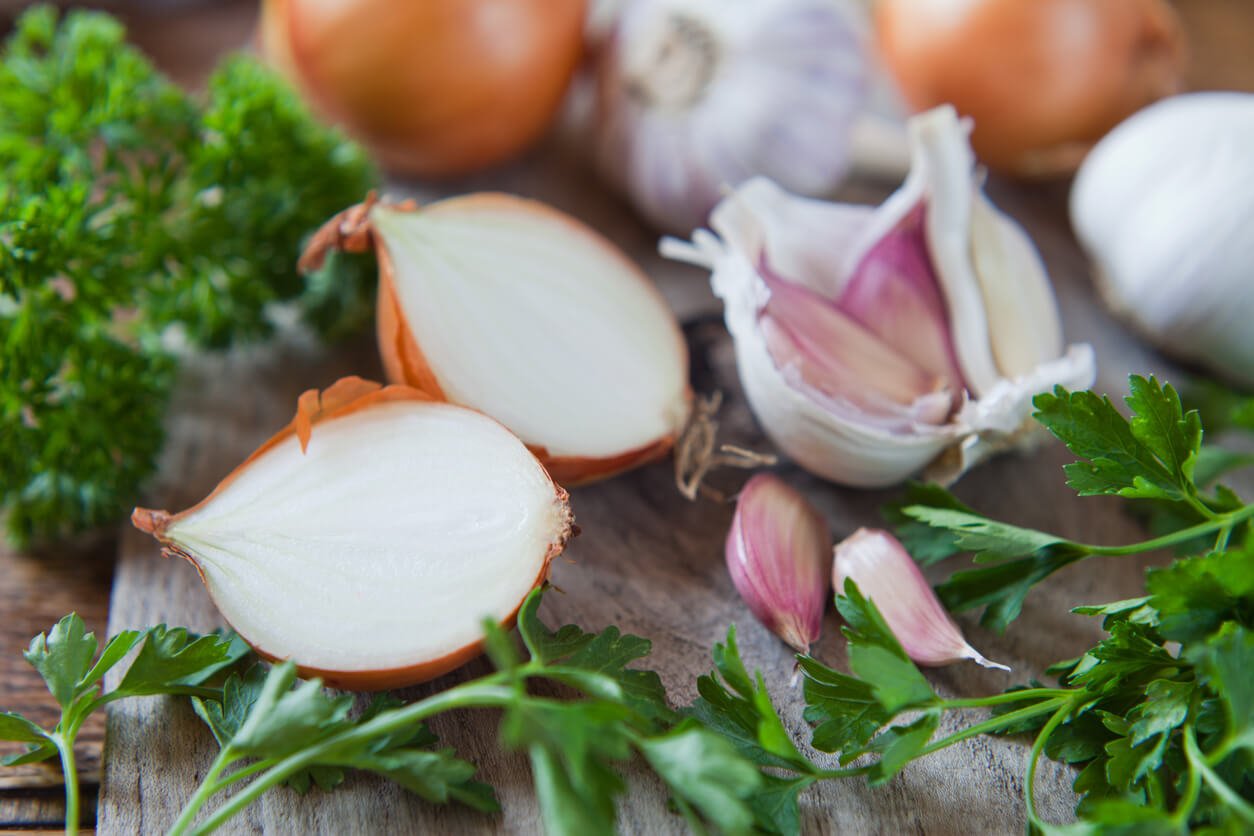
Sulfur is an additional cofactor in collagen synthesis; it helps to stabilize collagen. It’s found in foods high in protein as well as in sulfinates, allicin, sulfides, thiamin, and biotin. Some good plant-based sources of sulfur come from the allium family of veggies, which includes onions, garlic, chives, and leeks. You’ll also find sulfur in cruciferous vegetables, leafy greens, nuts, seeds, legumes, and whole grains.
Copper
Copper is a key cofactor that enables the enzyme lysyl oxidase to support the body’s natural elastin and collagen functions. Good sources of copper in your diet include whole grains, beans, nuts, potatoes, tofu, leafy greens, cocoa, and dried fruit.
Note: Copper is one nutrient that is especially important to get from foods rather than supplements, because supplemental copper can easily overload the body; excess copper may be as bad as (or worse than) a deficiency.
Iron
Iron is required for the synthesis of collagen. Without adequate iron, your body struggles to make and maintain collagen stores. While many people get too much iron, getting enough is also critical. Some good sources of plant-based iron in the diet are legumes, tofu, nuts, seeds, and leafy greens. (For more on iron, see our article here.)
Vitamin E
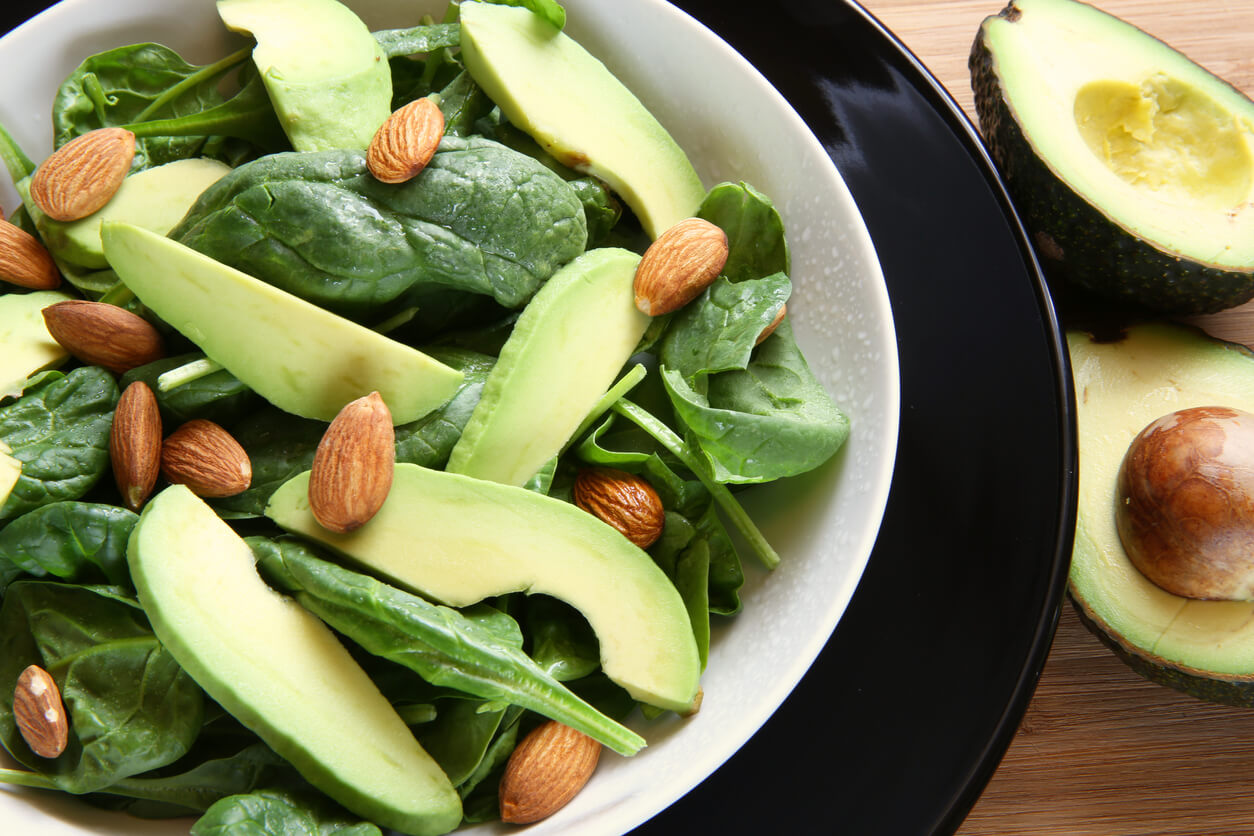
Consuming vitamin E, an antioxidant, helps to protect collagen stores from oxidative damage. A few good sources of vitamin E include nuts, seeds, leafy greens, and tropical fruits like kiwi, mango, and avocados.
Polyphenols
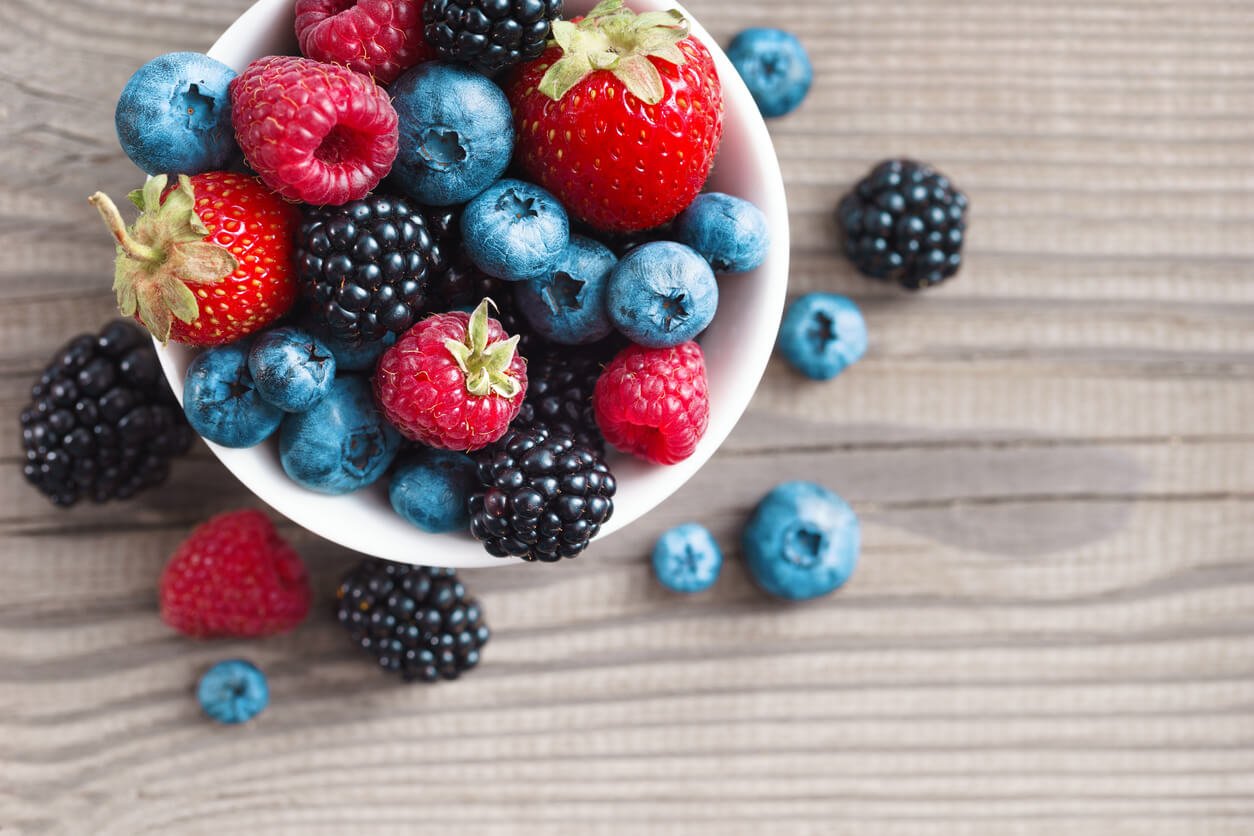
Polyphenols are responsible for some of the extraordinary benefits that plant foods have to offer. For instance, polyphenols reduce oxidative damage and inflammation in the skin through their natural antioxidant and anti-inflammatory effects.
These plant compounds also inhibit collagen degradation, increase collagen synthesis, and help to keep inflammation at bay. Some good places to find polyphenols include colorful fruits and vegetables such as grapes, cabbage, berries, peppers, and garlic, as well as tea, coffee, and spices.
What about Collagen Supplements?
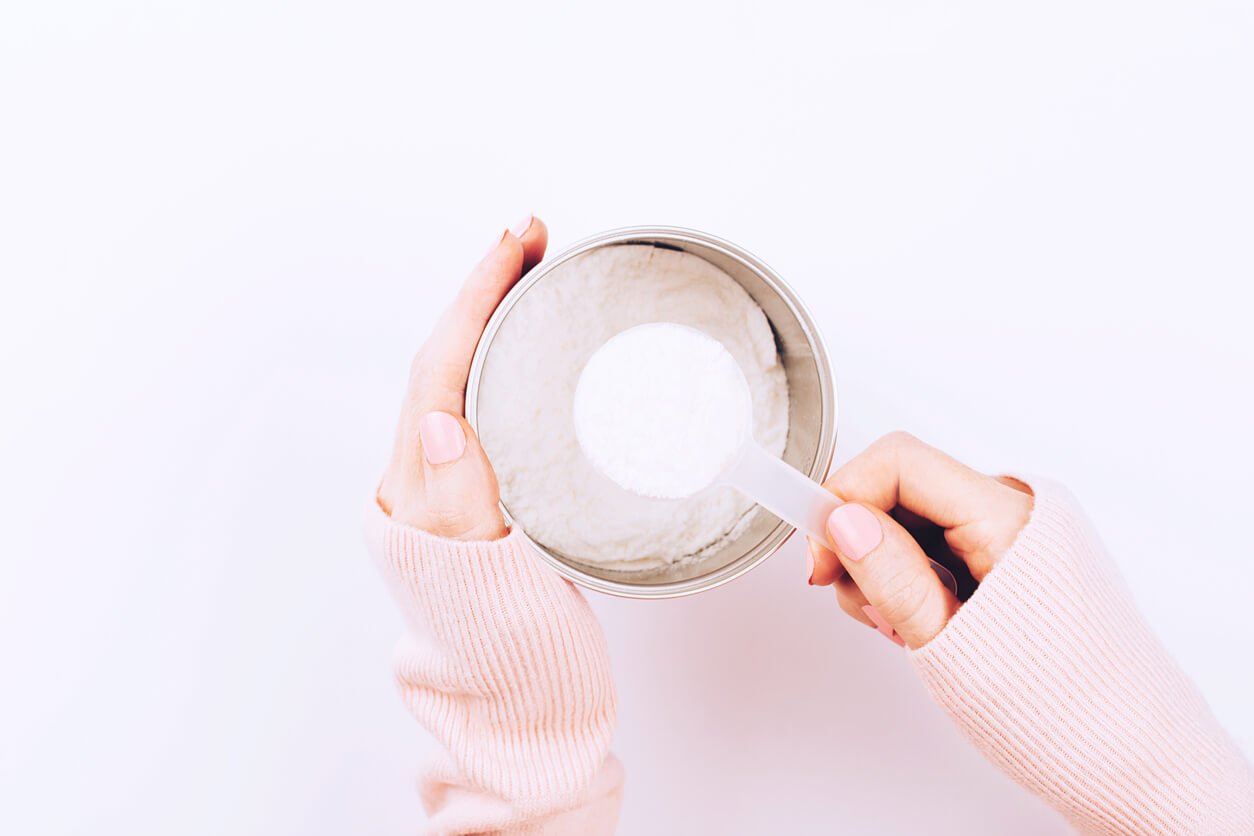
If, as we’ve seen, your body makes collagen from the amino acids in protein, then you may be asking: What exactly are the collagen supplements that are so heavily marketed today, and do they help?
How Are Collagen Supplements Made?
The collagen in supplements is most commonly sourced from cows, chickens, and pigs, as well as marine life like fish, octopi, and jellyfish. (It can also come from other animals, such as alligators, kangaroos, and sheep.) Currently, there are no vegan collagen products available, although there are some in the works using GMO yeast or bacteria.
Do Collagen Supplements Work?
Collagen supplements come in powder, capsule, or liquid form, as well as in topical creams. When digested in the stomach, collagen is broken down into amino acids that are then distributed wherever the body most needs protein. However, there’s no guarantee that collagen is targeting the specific areas that are claimed in many products.
The marketing for collagen products sometimes claims that they can improve skin elasticity, reduce visible wrinkles, and increase blood flow to the skin. For the most part, these claims aren’t backed up with credible evidence, so regulatory agencies have required them to be removed from certain products.
Overall, there’s been a lack of large-scale randomized controlled trials on the effect of collagen supplements on human collagen production and skin health. At this point, the findings are weak, conflicting, and largely anecdotal. There’s no definitive evidence that these products or forms of collagen actually help you absorb collagen or increase production. Research on the products that suggest differently are often sponsored by companies who make collagen products, making them inherently biased.
There are, however, some indications that supplemental collagen may help somewhat to relieve joint pain, prevent bone loss, promote muscle mass, and support heart health.
One animal-free form of supplement is a collagen-booster — like this one from Future Kind, which provides multiple nutrients that can help support your body’s natural production of collagen. This booster provides nutrients that you can get from food, but all at once in a concentrated dose.
What’s the Best Way to Help Your Body Produce Collagen?

Collagen-booster supplements might help, but at best they will mimic the benefits of a whole foods, plant-based diet by including nutrients that help boost your body’s own collagen production. Before reaching for one of these supplements, you may want to try to get these nutrients from your diet first. If you aren’t able to get all the nutrients you need from your diet (or if you have higher protein requirements due to age or athletic activity), you may want to consider adding a food-based collagen booster to your diet.
If you have questions about adding collagen or collagen-boosters to your lifestyle, it’s usually best to consult with your healthcare practitioner for personalized guidance.
Plant-Based Recipes to Support Collagen Production
The recipes below can help support collagen production (and prevent its breakdown) with their vibrant colors (polyphenols), abundant vitamins and minerals, and plant-powered protein. A Harvest Grain Breakfast Bowl is a collagen-friendly way to start the day (bonus: You can also enjoy it for dinner)! The skin-loving, not-so-secret to Savory Spinach and Squash Farro? All those plants! And Creamy Kale Pineapple Smoothie is a great example of a delicious, nutrient-powered blend that is good for your skin, bones, and joints!
1. Harvest Grain Breakfast Bowl
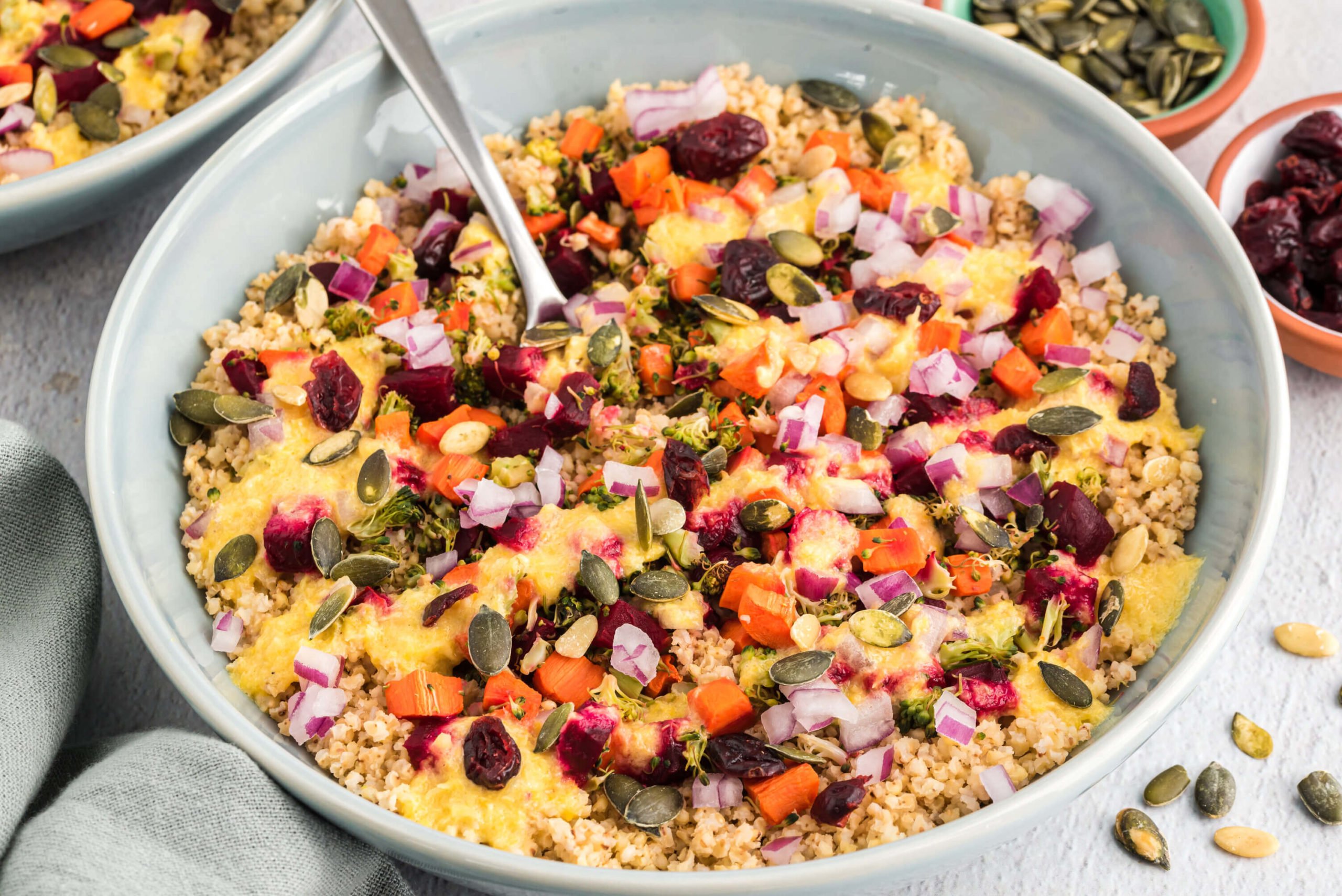
Start your day with a collagen-supporting breakfast. This Harvest Grain Breakfast Bowl is packed with a variety of collagen-friendly nutrients including zinc and protein from the pumpkin and millet, vitamins A and C from the beets and broccoli, and sulfur from the broccoli, onions, and millet. This bowl demonstrates that you can support collagen production easily when you add a variety of colorful plants to your plate.
2. Savory Spinach and Squash Farro
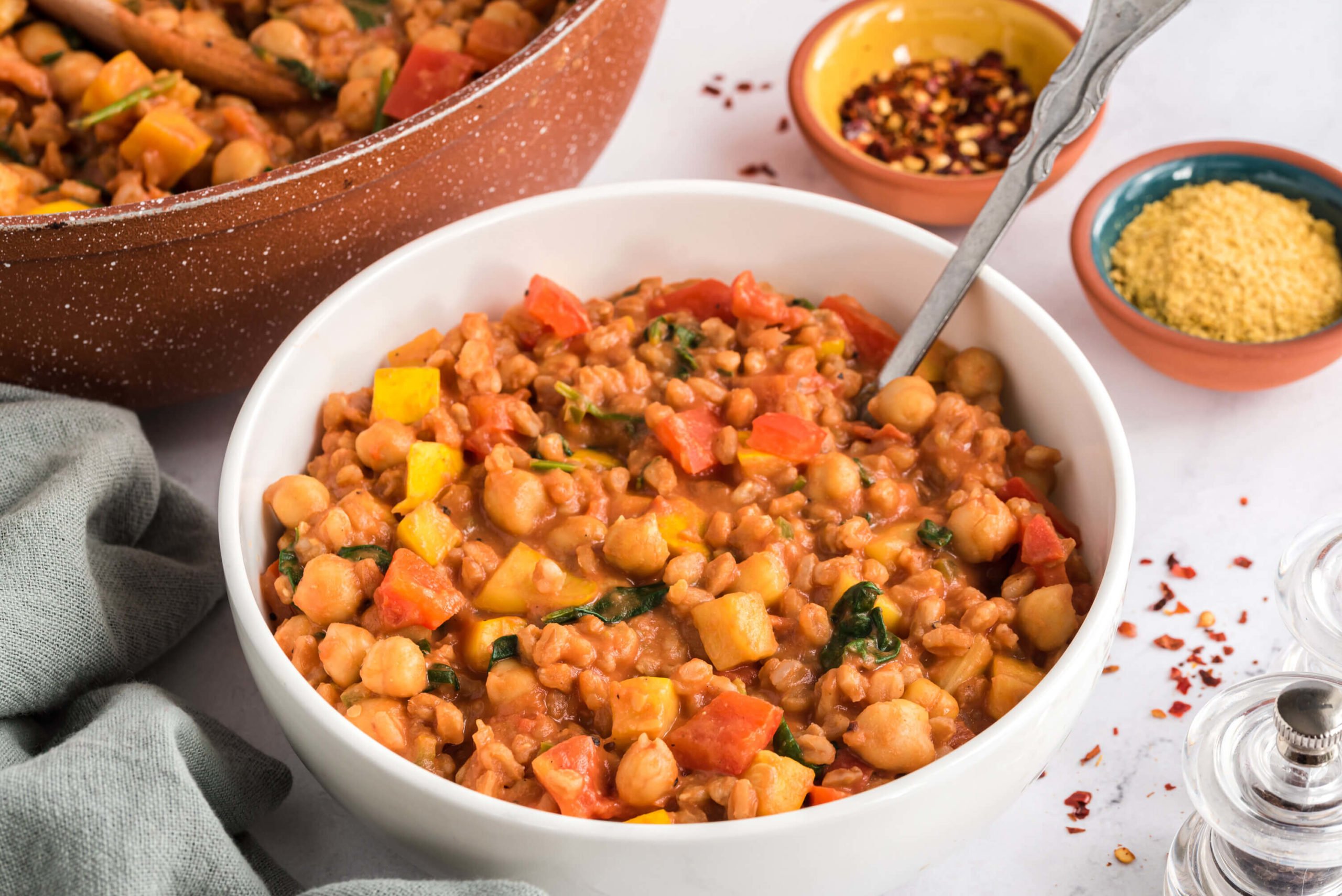
How can something so delicious be good for you? The answer is simple — plants! Savory Spinach and Squash Farro is bursting with antioxidant vitamins C, A, and E, iron, and protein (all nutrients that help to support collagen production and prevent collagen breakdown). The key is also in the colors — notice the green spinach, yellow squash, red bell pepper, and bright red tomatoes. These colors are phytonutrients in action, healing us from the inside out.
3. Creamy Kale Pineapple Smoothie
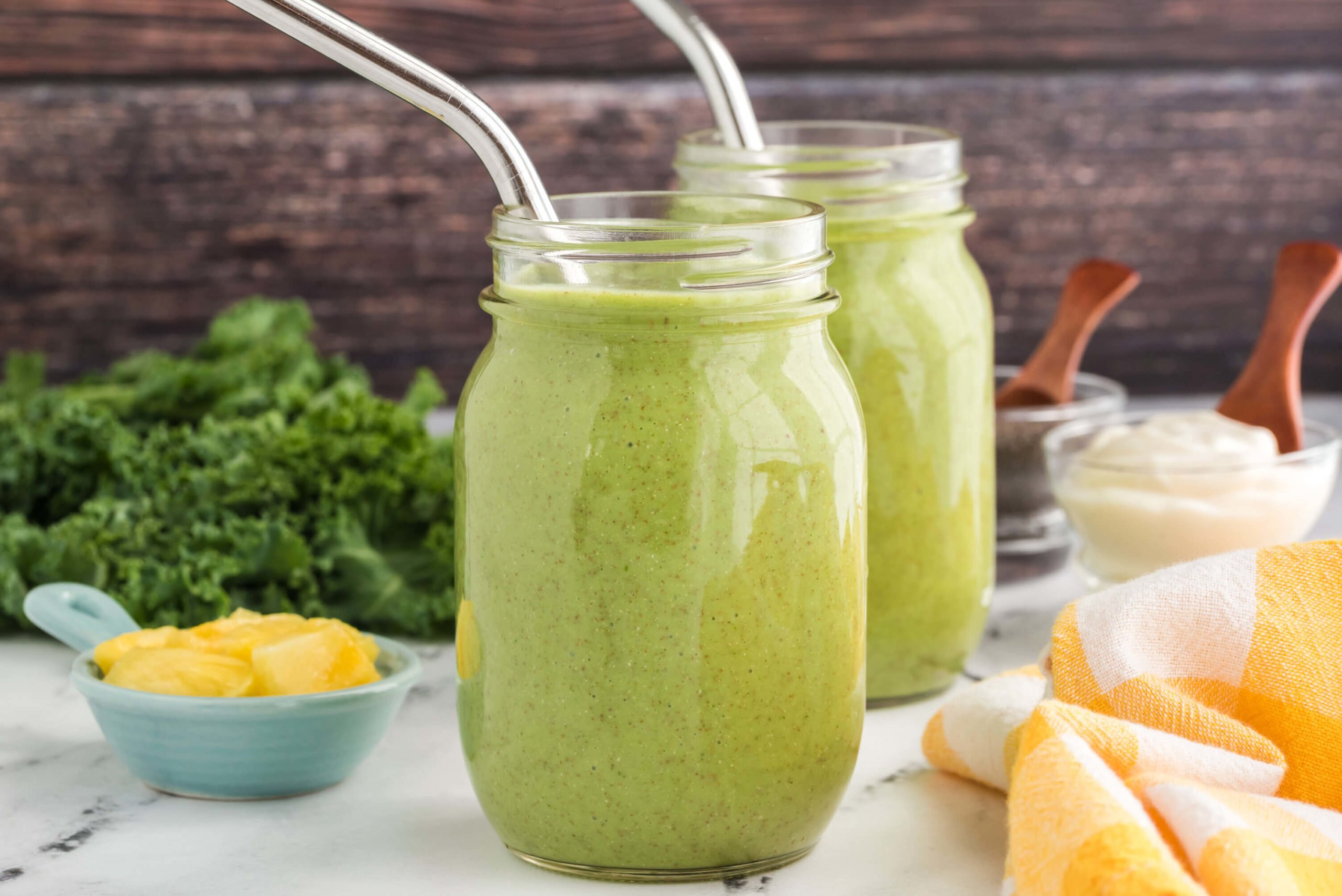
Smoothies can be a polyphenol smorgasbord, and Creamy Kale Pineapple Smoothie is no exception. Power up the polyphenols even more by including other plant-based ingredients like matcha tea, goji berries, or strawberries. This smoothie also includes protein (essential for collagen production) in the plant-based yogurt and chia seeds.
Support Collagen Production With a Healthy Plant-Based Diet
Collagen is a much-hyped class of proteins that’s been marketed as an anti-aging “fountain of youth.” Collagen is also necessary for good health, as it’s found throughout the body and performs many critical functions. You can support its production by eating a healthy, well-balanced diet full of whole plant foods like nuts, seeds, legumes, whole grains, fruits, and vegetables.
Most collagen supplements are made from animal products and break down into amino acids in the body (the same amino acids you can get from many other protein sources). Despite big claims, there is little evidence to support the use of these products for skincare. Collagen boosters are dietary precursors to collagen, and they aren’t necessary for most people who already get enough of these nutrients in their diets but they can provide a “boost” which may be useful for some people.
Tell us in the comments:
-
Are you concerned about collagen?
-
What steps have you taken to avoid collagen breakdown?
-
What are your favorite plant-based foods to support collagen synthesis?
Feature Image: iStock.com/MarianVejcik
